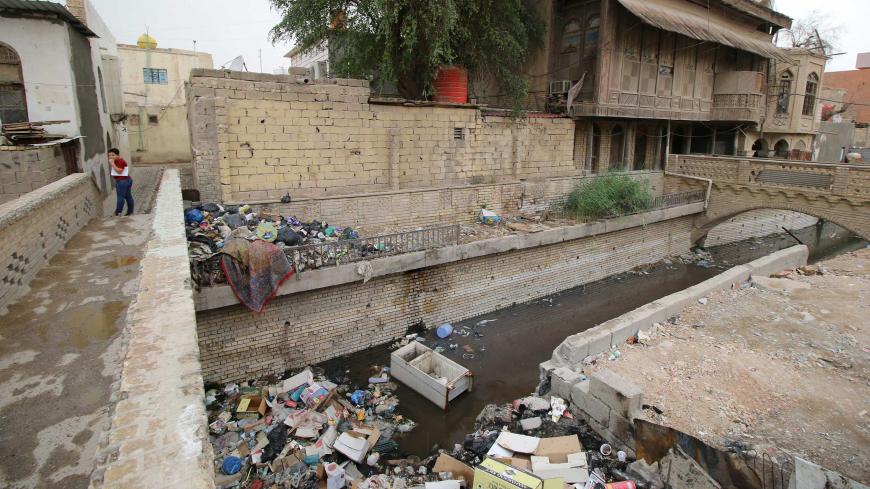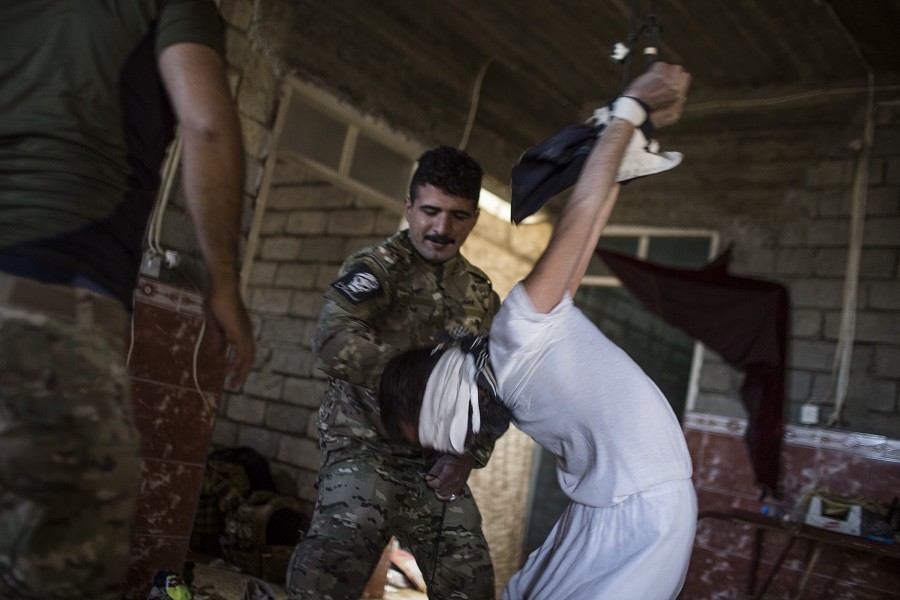The Iraqi Observatory for Human Rights said that seven thousand people have been poisoned in Al-Basra province during the past few days as a result of drinking contaminated water, there are indications of a humanitarian disaster unless the Iraqi government steps in to help the population out there for the removal of their tragedy.
A few days ago, the Basra Health Control division in the Health Department revealed that the pollution of the lagoons in the governorate was very high. Chemical pollution in the water was 100% and the bacterial contamination was 50%.
The monitoring network of the Iraqi Observatory for Human Rights recorded more than seven thousand cases of poisoning in the areas and districts of Al-Basra province in southern Iraq during the past two days while noting the deterioration in the provision of health services in light of the large numbers and increasing daily infected with poisoning.
Abdullah Tawfiq, one of the protesters who was poisoned in the sit-in. "When I returned home on Wednesday evening, August 22, after participating in the sit-in, I took my food, drank the water, and then went back to participate in the sit-in in the square of Abdul Karim Qassim in central Basra. After less than an hour, I had colic, severe intestinal pain, vomiting and severe diarrhoea."
He said "My fellow activists took me to al-Sadr Teaching Hospital and when I did initial tests it turned out to I`m poisoned by drinking water,"
Tawfiq also expressed that "the health services are miserable and below the level of catastrophe that hit Al-Basra and its people. I watched the people suffering from poisoning and in large numbers, kicking the floors of hospitals and rolling from pain."
Tawfiq said " I treated myself and opened the Nutrilite and put it to myself as I had previously entered a course in first aid I asked the doctors to assist me or help others, but the numbers were large and health manpower were a few and could not cover these terrible numbers that had been poisoned,"
Mohammed al-Waeli, a civilian activist from the Haritha area north of Basra expressed "What is happening in Al-Basra is currently a case of the poisoning of its inhabitants, and in these large numbers, which exceed thousands every day, makes it a distressed city."
Al-Waeli also said, " the tap water being unfit for drinking due to its salinity we have come to buy desalination water from the desalination plant. On Thursday, August 23, my wife drank from tap water of the desalination plant (RO) and was also poisoned,"
"After less than an hour, my wife suffered severe intestinal pain and severe colic. We rushed to the port hospital. There was a bigger disaster. We found large numbers of people with the same symptoms and insufficient medicines in the hospital as the numbers increased."
He also said, "I had to buy the rest of the treatments from the pharmacy outside , and those who are unable to buy the treatment externally are still writhing from the pain until one of the health manpower comes to them and gives them the treatment."
The Iraqi Observatory for Human Rights declared that "Basra hospitals have been overcrowded since Wednesday, 22 August, and so far thousands of injured and coincided with poisoning spread concurrently with the Eid al-Adha holiday, where 50% of medical personnel are in health institutions."
Citizens from Basra said, "Those who have the financial ability can transfer their patients to clinics and civilian hospitals, on the other hand, the poor and the homeless people are still praying in the corridors of public hospitals."
The Iraqi Observatory for Human Rights said that "all areas of Basra have been poisoned and more than 1500 people are entering daily emergency shelters over there and in increasing numbers every day without a solution by the local or central government which it's their responsibility for providing a decent life and health services to citizens by national laws and international obligations.”
The Iraqi Observatory for Human Rights claimed the Iraqi government bears responsibility for the disaster that is taking place against the citizens of the oil-rich province of Basra, which relies on 90 per cent of the Iraqi economy on its oil.
Basra Health Director Dr Riyadh Abdul Amir said in an interview with the Iraqi Observatory for Human"So far, we have not identified the causes of poisoning whether it is from water or other carriers of diseases that occur in Basra,"
He also said that "most of the cases that reached the hospitals in Basra do not apply to diarrhoea according to the definition of the World Health Organization, only (1500) infected have been identified as drinking water out of more than (7000) thousands of infected throughout the province so far."
"The World Health Organization is currently monitoring the performance and events in Basra, according to Clinical diagnosis so far most cases are cases of colic and severe intestinal nausea and vomiting in some cases."
Dr Abdul Amir also added "Our real fear is that cholera is more serious than this, but at the moment we have not diagnosed or registered any cholera cases, but we would expect them if the situation remains as it is with lower temperatures in the coming days, The spread of cholera in water, which has a fertile environment by increasing the proportion of salinity in water.
The Iraqi Observatory for Human Rights said "Most of the casualties are in the Folk areas, where the numbers of informal houses are increased especially Shatt al-Arab, five miles, Alma’qal and Kerma Ali, and other areas of Basra, lowest record of a low rate injury is Qurna.
The Director of Basra Health said that "The germ that has spread and infected thousands of Basrah citizens is classified as a moderate germ and below the threat level and direct danger and her incubation lasts in the infected body for less than 48 hours.”
The Iraqi Observatory for Human Rights expressed that "the health services provided in Basra hospitals do not meet the need of 15% of the injured patients, and this is the case with other hospitals in Iraq that do not deliver services to citizens according to the standards committed by the Iraqi state".


